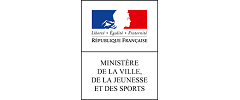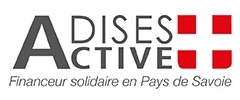World Bank Fund targets Armenia's poor.
Heating for schools, potable water in homes and rehabilitated irrigation systems for 100 villages
16.11.2006 |Gero Fedtke
Yerevan: Vigen Sargsyan, 374 10 524 884
E-mail: vsargsyan@worldbank.org
Washington: Miriam Van Dyck 1 202 458 2931
Email: mvandyck@worldbank.org
WASHINGTON, October 26, 2006 -- The World Bank's Board of Executive Directors today approved a credit of US$25 million equivalent for a Social Investment Fund III (ASIF III) Project for Armenia. This project will assist the Government of Armenia in its efforts to improve the living standards of the poor and strengthen institutions at the local level.
So-called "infrastructure gaps," including schools and primary health clinics or ambulatories that are in need of repair or reconstruction, are most acute in the rural areas, especially in the remote and isolated communities. While unmet demands remain throughout Armenia, the needs of earthquake zone communities are large, and include potable water and special schools. For high mountainous communities, potable water remains a high priority, along with community centers. The new project will help to meet these and other needs over the medium-term.
"The main strength of ASIF is its capacity to penetrate into remote, isolated, and poor communities, provoke effective discussion on their perceived priorities, and to bring the project proposals to serve their needs," said Caroline Mascarell, Head of the World Bank team designing the project. Thus, the Fund will support the improvement of basic social and economic infrastructure, short-term employment opportunities, community participation, and local capacity building and empowerment, she noted.
The ASIF III Project will benefit from the effective institutional and implementation arrangements already in place under the ASIF I and II projects. ASIF has successfully been in operation for the last decade; so far, 587 micro-projects in 271 rural and urban communities have been completed under the project, reaching up to 1.7 million beneficiaries all over Armenia.
The ASIF III project has two main components. It would support community investments in the poorest communities of Armenia through basic small-scale social and economic infrastructure rehabilitation. The project would also compliment community investment through local level institutional strengthening, monitoring and evaluation. It is designed to increase the competencies and accountability of municipal administration in such areas as financial management, budgeting, accounting, and asset management.
By the time the project is completed, more than a hundred of the neediest communities (of small and medium size, and mostly rural) would benefit from newly constructed and renovated schools that are warmer during the winter; specialized schools for orphanages, handicapped children, and art students; sports facilities; community centers; potable water in homes; and rehabilitated irrigation systems.
The credit is provided on "hardened" IDA terms, with a maturity of 20 years and a grace period of 10 years included. Since July 1, 2006 Armenia has been in the process of graduating from IDA eligibility.
Since joining the World Bank in 1992 and IDA in 1993, commitments to Armenia have totaled approximately US $952.25 million for 44 operations.


































